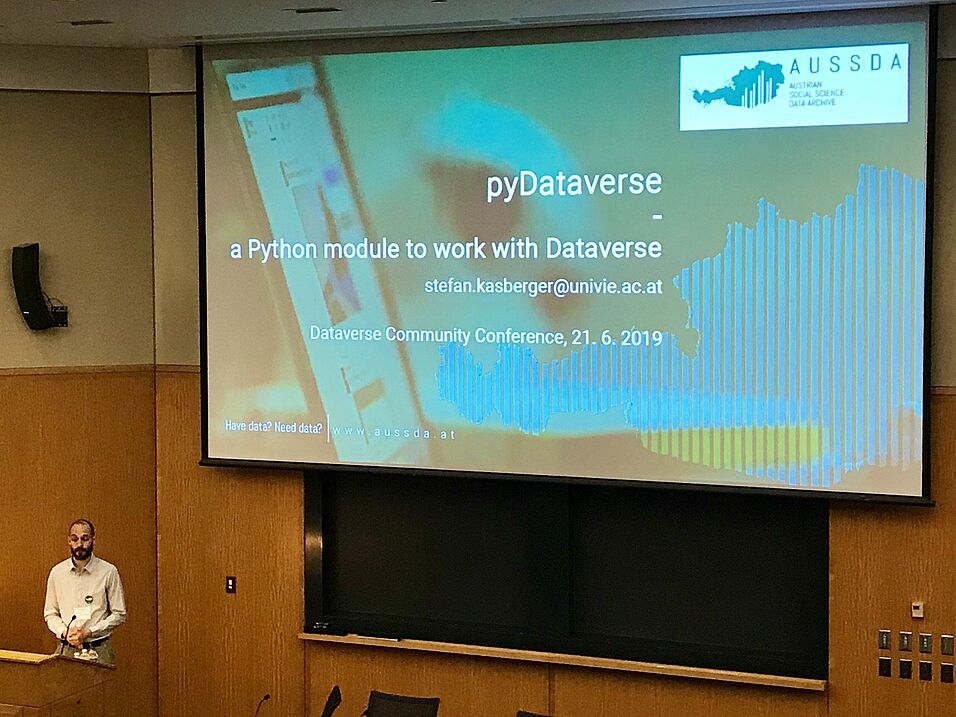Dataverse Community Meeting 2019
Einmal pro Jahr trifft sich die internationale Dataverse Community rund um Dataverse, einem Open Source Forschungsdaten-Repositorium, zum Dataverse Community Meeting, um sich über Neuigkeiten und zukünftige Entwicklungen auszutauschen. Auch bei AUSSDA wird Dataverse als Forschungsdaten-Repositorium genutzt, um den NutzerInnen Forschungsdaten zur Verfügung zu stellen (siehe data.aussda.at). Dieses Jahr fand die Konferenz vom 19. bis 21. Juni statt, wie üblich an der Harvard University in Boston, MA. Dort präsentierte Stefan Kasberger zum ersten Mal pyDataverse, ein selbst entwickeltes Tool für Dataverse, vor knapp 180 TeilnehmerInnen aus aller Welt. pyDataverse soll in Zukunft dabei helfen, größere Mengen an Metadaten und Daten in Dataverse zu migrieren sowie Dataverse über eine so genannte Schnittstelle (API) anzusteuern.
pyDataverse - mit Dataverse-Daten arbeiten und auf die Schnittstelle zugreifen
pyDataverse eignet sich speziell, um Daten - inklusive Metadaten - aus einem Format oder System in ein anderes zu migrieren, wenn der Ausgangspunkt oder das Ziel die Repositoriumssoftware Dataverse ist. Durch pyDataverse soll in Zukunft das aufwändige Konvertieren von Daten aus verschiedenen Formaten hin zu Dataverse schneller, mit weniger Fehlern und komfortabler möglich sein. Vor allem die Migration der Daten und Metadaten von der alten Software (NESSTAR Server) in unsere neue Forschungsdaten-Repositoriums-Software (Dataverse) stand bei der Entwicklung im Mittelpunkt - und hat auch schon international für viel Interesse gesorgt. pyDataverse nutzt die Programmiersprache Python, ist Open Source und hat eine umfangreiche Dokumentation. Näheres dazu findet sich auf GitHub. pyDataverse wird unter anderem im Rahmen des Horizon2020-Projekts Social Sciences and Humanities Open Cloud (SSHOC) weiterentwickelt.
SSHOC, "Social Sciences and Humanities Open Cloud", hat Mittel aus dem Horizon-2020-Projekt der Europäischen Union H2020-INFRAEOSC-04-2018, Fördervertrag #823782 erhalten.


